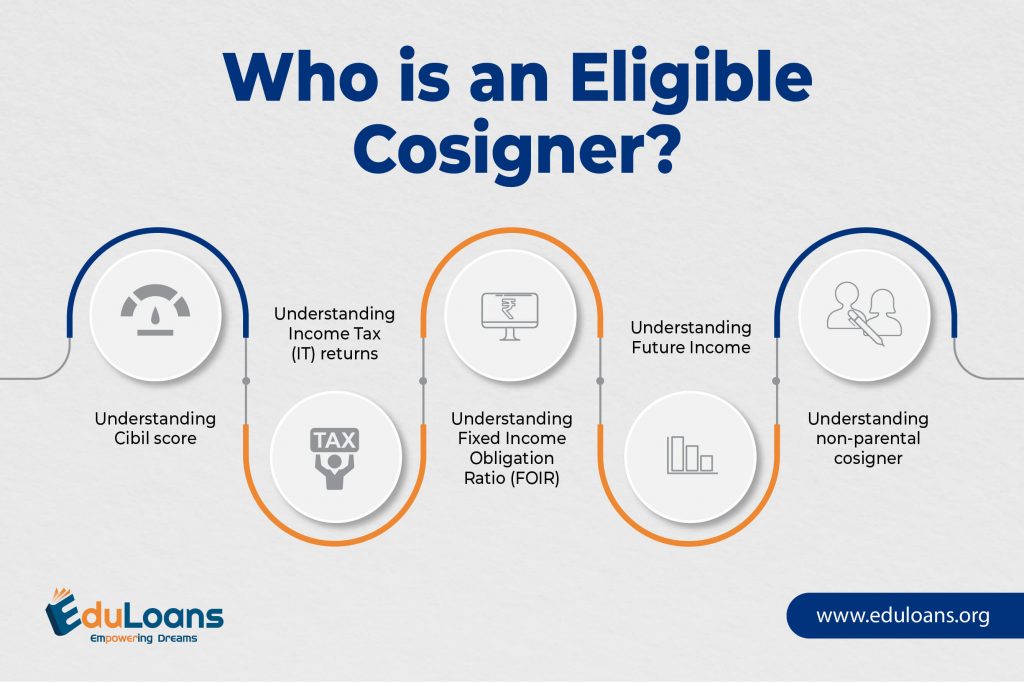
Studying abroad is an exhilarating experience. For the student, it opens up many global opportunities which would not be accessible if one is studying in India. The lure of studying abroad is further augmented by the chance of settling in the country of study with a comparatively higher lifestyle than the one in India. However, education abroad is expensive and quite unaffordable for the majority of Indians. In most cases, students are relying on loans for study abroad. For all Indians studying abroad, financial institutions require you to have a valid cosigner which in most cases is your parent. Let’s look at what eligibility parameters these banks require from a cosigner to successfully get an education loan for study abroad.
Understanding Cibil score – Cibil is a body which provides the credit score of any Indian individual. The score ranges from 300 to 800. Majority of the financial institutions want a credit rating of above 650. In case the parent has never taken a loan, he will not be eligible if his credit score will not be above 650. It is recommended that a track record be built for a parent to successfully get an education loan for study abroad. In case the parent has defaulted even as small as a credit card, Cibil score will be affected. Hence, the parents are advised to clear all loans and EMIs that can create a bottleneck for securing an education loan abroad for your child. Unsecured lenders are more particular than secured lenders with regard to the Cibil score of the parent.
Understanding Income Tax (IT) returns –Most of the financial institutions providing education loans abroad compulsorily want to see the IT return for at least the last two years if not three years. Parents need to file IT returns in case they wish to cosign alone for study abroad. The minimum IT return is approximately around 4 to 5 lakhs for an unsecured or a secured loan.
Understanding Fixed Income Obligation Ratio (FOIR) – Fixed income obligation ratio (FOIR) is the amount of accrued EMI to the free income available by the parent/cosigner. Once they have understood the IT returns of the parent, the financial institutions especially NBFCs look at EMI’s or other financial obligations of the parents/cosigner. They reduce this amount from the net income of the parent/cosigner. In majority cases, the FOIR cannot be more than 50/60%. This means that the maximum EMI possible is 50% of the free cash flow of the cosigner.
Understanding Net Worth – In cases of loan for study abroad where the parent is on the verge of retirement or has passive income, certain financial institutions especially secured ones look at the net worth of the family. The net worth is an assurance that the parents are capable of repaying the loan in case the student defaults on the payment.
Understanding Future Income – In cases where the student is looking at an unsecured education loan abroad, most lenders look at the future earnings of the parent. In case the parents are going to be retired, a student shall not be provided an unsecured loan by many lenders for study abroad. In this scenario, the loan for study abroad usually comes with the mortgage of collateral security.
Understanding non-parental cosigner – Certain financial institutions for education loan abroad accept first of kin like brother, sister, maternal aunt/uncle, paternal aunt/uncle as a valid cosigner for a loan for study abroad. These people’s incomes are treated in the same way as parents’ income are treated and sometimes clubbed to increase the eligibility for an education loan abroad.
We at Edu loans understand all the parameters of a successful cosigner among all our 16 lenders. We are in the best position to guide for loans for study abroad for potential aspirants. We are a free platform, and unbiased in review, successful and transparent with over 16000 students on our platform. Please connect with us at www.eduloans.org for a dedicated Education loan abroad counselling session.